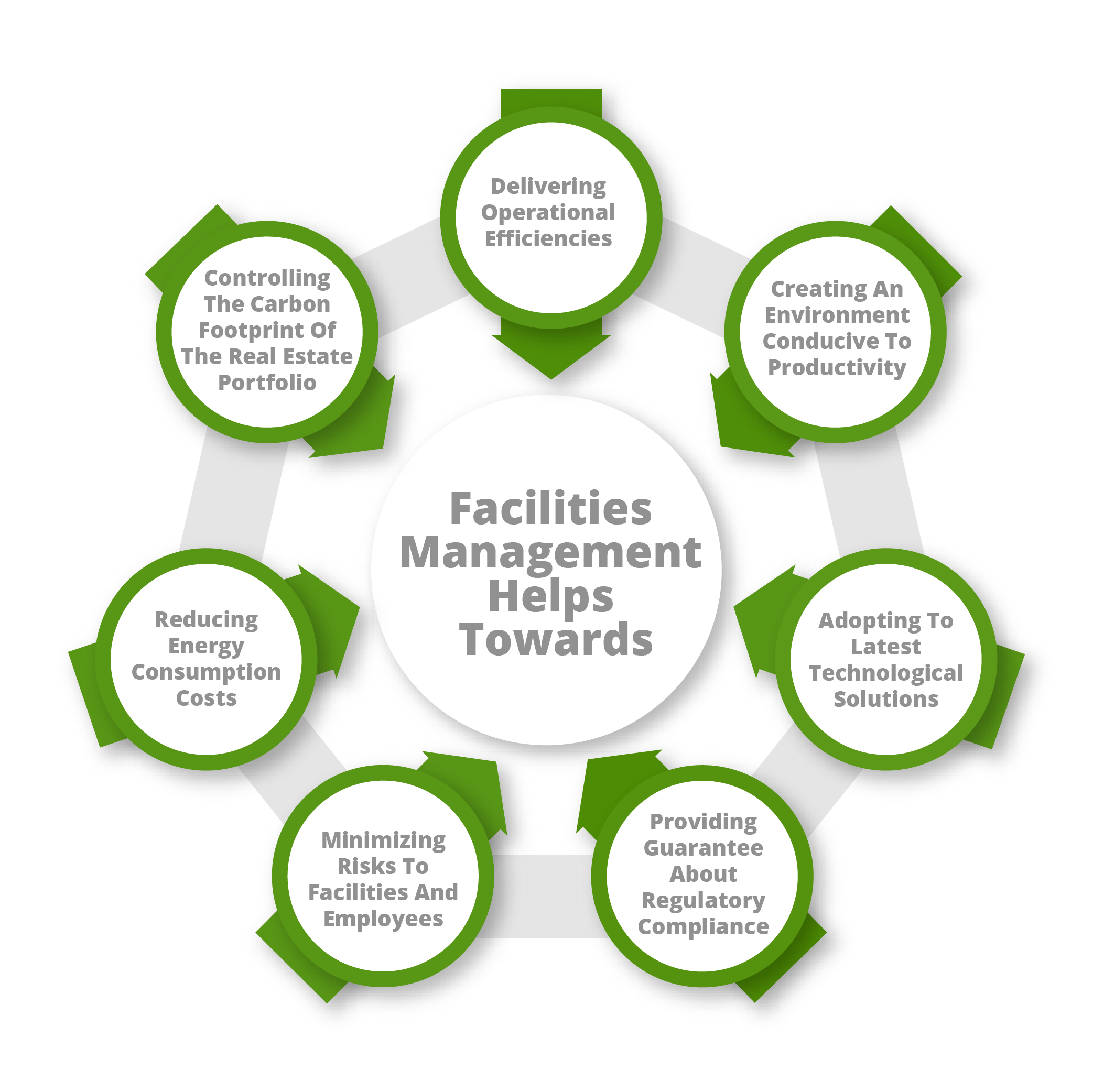
How to Become a Facilities Management Expert: Pro Tips
Becoming a facilities management expert involves acquiring specific skills and knowledge. It’s about overseeing building operations, ensuring efficiency, and maintaining safety.
Facilities management is crucial in today’s business world. It involves coordinating various tasks that keep buildings running smoothly. From maintenance to security, the role is diverse and dynamic. This field offers a chance to make a real impact. Facilities managers help organizations operate efficiently.
They ensure everything from electrical systems to janitorial services work perfectly. It’s a career that requires attention to detail and problem-solving skills. Those entering this field should be ready to handle multiple challenges. With the right approach, you can become a successful facilities manager, contributing to the smooth operation of businesses everywhere.

Career Pathways
Facilities management offers a diverse and rewarding career pathway. As the backbone of any organization, facilities managers ensure that buildings operate smoothly. They handle everything from maintenance to safety. The career in facilities management is dynamic, combining technical knowledge with managerial skills. Whether you aim to work in a corporate setting, healthcare, or educational institutions, understanding the career pathways is essential. This guide will help you navigate the educational requirements and certification options, paving the way for a successful career in facilities management.
Educational Requirements
To start a career in facilities management, having the right educational background is crucial. A facilities management degree can be your stepping stone. It typically covers topics like building systems, project management, and sustainability. Here are some key points regarding educational requirements:
- Associate’s or Bachelor’s Degree: While an associate’s degree may suffice for entry-level positions, a bachelor’s degree is preferred for advanced roles.
- Relevant Fields: Degrees in engineering, business administration, or architecture are beneficial.
- Facilities Management Training: Specialized training programs offer practical insights.
Beyond formal education, gaining hands-on experience through internships can be invaluable. Such experiences help in understanding the real-world application of skills for facilities management. Consider exploring online courses and workshops for professional development in facilities management. These can enhance your knowledge and keep you updated with the facilities management industry standards.
Certification Options
Certifications play a vital role in establishing your credibility in the facilities management field. They demonstrate your commitment and expertise. Here’s a look at some popular facilities management certification programs:
- Certified Facility Manager (CFM): Offered by IFMA, this certification is recognized globally.
- Facilities Management Professional (FMP): Ideal for those new to the field, focusing on the basics.
- Sustainability Facility Professional (SFP): Centers on sustainable practices.
These certifications require passing exams and often need renewal, ensuring you stay current. They boost facilities management job prospects significantly. Having certifications can elevate your facilities manager qualifications, making you a desirable candidate for top positions. Consider these certifications as part of your professional development in facilities management. They not only enhance your skills but also align with facilities management industry standards.

Essential Skills
Becoming a successful facilities manager requires a diverse set of skills. These skills ensure the efficient operation of facilities and enhance workplace environments. Essential skills form the backbone of a facilities management career. Whether it’s managing teams or maintaining systems, these skills are vital. Let’s explore the key skills needed for this rewarding role.
Communication Skills
Communication is the cornerstone of effective facilities management. A facilities manager interacts with various stakeholders, including employees, vendors, and contractors. Strong communication skills are crucial to ensure smooth operations. Here are some key aspects of communication in facilities management:
- Clear Instructions: Providing clear and concise instructions to team members and vendors is crucial. This ensures tasks are understood and executed properly.
- Active Listening: Understanding the needs and concerns of others is vital. It helps in addressing issues promptly and effectively.
- Feedback Mechanism: Regularly seeking and providing feedback can improve operations. It fosters a culture of continuous improvement.
A facilities manager must also engage in project management in facilities. This involves coordinating with different teams and ensuring everyone is on the same page. Effective communication ensures that projects are completed on time and within budget.
Technical Proficiency
Technical skills for facilities management are essential. Facilities managers handle a range of technical tasks daily. These include building maintenance, safety regulations, and vendor management. A solid technical foundation ensures efficient facility operations. Key technical skills include:
- Building Systems: Knowledge of HVAC, electrical, and plumbing systems is crucial. Managers must oversee regular maintenance and address any issues.
- Safety Regulations: Understanding and implementing safety regulations is essential. It ensures a safe working environment for all occupants.
- Property Management Software: Familiarity with property management software enhances efficiency. It helps in tracking maintenance schedules and managing resources effectively.
Technical proficiency in these areas supports a facilities management career. It allows managers to make informed decisions and optimize facility operations. This proficiency is crucial for managing complex systems and achieving organizational goals.
Industry Knowledge
Embarking on a journey to become a facilities management professional requires a deep understanding of industry knowledge. This essential element acts as the backbone of efficient building operations and asset management. Grasping the intricacies of regulatory standards and sustainability practices is crucial. It not only ensures smooth property management but also fosters an environment that thrives on compliance and eco-friendly initiatives. Knowledge in these areas is critical for those pursuing a facilities management certification. The ability to integrate vendor management, risk assessment, energy management, and facility maintenance into daily operations is key to success in this field.
Regulatory Compliance
Regulatory compliance is a cornerstone of facilities management. It ensures that building operations adhere to local, state, and federal laws. Understanding regulatory standards is vital for effective asset management and property management. Facilities managers must be familiar with a wide range of regulations, from health and safety codes to environmental laws.
- Health and Safety Codes: These ensure the safety of occupants and workers.
- Environmental Regulations: Compliance with these rules promotes sustainability.
- Building Codes: Ensure structures meet legal requirements.
Knowledge of these areas aids in risk assessment and vendor management. It is important for facilities management certification. Regular updates and training are crucial. They keep the management team informed about changes in regulatory standards. Implementing a compliance checklist can be beneficial. It assists in maintaining adherence to these regulations.
| Regulation Type | Purpose |
|---|---|
| Health and Safety | Protect occupants and workers |
| Environmental | Promote sustainability |
| Building Codes | Ensure legal requirements |
Sustainability Practices
Sustainability practices in facilities management focus on eco-friendly building operations. Green building initiatives play a significant role. They aim to reduce energy consumption and waste. Facilities managers must integrate these practices into their daily operations. Key sustainability practices include:
- Energy Management: Implementing systems to reduce energy usage.
- Waste Reduction: Encouraging recycling and efficient waste disposal.
- Water Conservation: Utilizing technologies to minimize water waste.
These initiatives not only benefit the environment but also enhance asset management. They can lead to cost savings and improved facility maintenance. Vendor management plays a role here too. Partnering with vendors who share these sustainability goals is essential. Regular audits and assessments help in identifying areas for improvement. Facilities managers should prioritize ongoing education in sustainability practices. This ensures they stay informed about new techniques and technologies. Embracing these practices is crucial for a comprehensive facilities management certification.
Networking Opportunities
Networking opportunities are crucial for advancing in facilities management. Connecting with industry professionals can enhance your understanding and open doors to new career paths. Learning from others also allows you to gain insights into best practices, strategic planning, and innovative solutions in maintenance management and building operations. Here, we explore how professional associations and conferences can boost your facilities management career.
Professional Associations
Joining professional associations can significantly benefit your career in facilities management. These organizations offer a platform to connect with peers, share knowledge, and stay updated on industry trends. Below are some notable associations to consider:
- International Facility Management Association (IFMA): Offers resources for facilities management certification and training.
- Building Owners and Managers Association (BOMA): Focuses on property management and strategic facilities planning.
- American Society for Healthcare Engineering (ASHE): Provides insights into workplace safety and environmental sustainability in facilities.
Members of these associations can access webinars, journals, and exclusive events. These resources are invaluable for understanding facility management best practices. Additionally, associations often provide mentorship programs, which are excellent for personal growth and learning. Engaging with a mentor can guide you through complex challenges and enhance your understanding of the industry.
Conferences And Events
Attending conferences and events is another effective way to network in the facilities management sector. These gatherings provide opportunities to meet industry leaders, learn about new technologies, and understand market trends. Here are some benefits:
- Knowledge Sharing: Workshops and seminars offer insights into maintenance management and workplace safety.
- Networking: Connect with professionals who can provide advice and share experiences in building operations.
- Exposure to Innovations: Discover the latest trends in environmental sustainability in facilities and more.
Conferences like the IFMA World Workplace or the BOMA International Conference are excellent for those seeking facilities management training. These events often feature keynote speakers who discuss strategic facilities planning and property management. Attending these conferences can also lead to collaboration opportunities, fostering a community of professionals dedicated to improving facility management best practices.
Gaining Experience
Gaining experience is essential for anyone pursuing a Facilities Management Career. It allows you to apply theoretical knowledge and develop practical skills. Practical exposure helps bridge the gap between academic learning and real-world application. This experience is crucial for building a robust career in Property Management and Workplace Efficiency. Let’s explore two main pathways to gain valuable experience.
Internships
Internships are a great starting point for aspiring facilities managers. They offer hands-on experience in a real-world environment. Internships allow you to work alongside seasoned professionals and learn the ropes of Building Maintenance and Operations Management.
- Learn the Facilities Management Job Description and daily tasks.
- Understand the importance of Facilities Management Skills.
- Participate in Facilities Management Training sessions.
Internships often last for a few months and can be a stepping stone to full-time employment. Many companies look for interns who show promise and dedication, potentially offering them permanent positions. Below is a table summarizing the benefits of internships:
| Benefit | Description |
|---|---|
| Networking | Build connections with industry professionals. |
| Skill Development | Gain Facilities Management Skills through practice. |
| Real-World Experience | Apply academic knowledge in a professional setting. |
Entry-level Positions
Entry-level positions are the first step in a Facilities Management Career. These roles provide a foundation in Operations Management and Building Maintenance. They are ideal for those with a Facilities Management Degree or related certifications. Common entry-level roles include:
- Assistant Facilities Manager
- Maintenance Technician
- Operations Coordinator
These positions offer the opportunity to learn more about Facilities Management Certifications and further training. You will gain exposure to various tasks outlined in the Facilities Management Job Description. In these roles, focus on:
- Improving Workplace Efficiency through effective management.
- Developing problem-solving skills in Building Maintenance.
- Understanding the dynamics of Property Management.
Starting with an entry-level position helps you gain confidence and prepares you for more advanced roles in the future.
Job Search Strategies
Starting a career in facilities management can be rewarding and fulfilling. The role involves overseeing various aspects of building operations and ensuring everything runs smoothly. Before diving into this field, it’s crucial to understand effective Job Search Strategies. These strategies will help you navigate the competitive landscape and secure a position that aligns with your career goals.
Resume Tips
Crafting a strong resume is essential in the facilities management job search. Your resume serves as your first impression, so make it count. Here are some tips to enhance your resume:
- Highlight Relevant Experience: Focus on your past roles that relate to facilities management. Include job titles, companies, and dates.
- Emphasize Key Skills: List skills like problem-solving, leadership, and project management. These are vital for a facilities management career.
- Education and Certifications: Mention any Facilities Management Training or Facilities Management Certification you have completed.
- Use Keywords: Incorporate terms from the Facilities Management Job Description into your resume.
Consider the following table to organize your information:
| Section | Details |
|---|---|
| Experience | List relevant job roles with descriptions |
| Skills | Include Facilities Manager Skills like communication and budgeting |
| Education | Mention degrees and relevant certifications |
Interview Preparation
Preparing for an interview in facilities management involves understanding the role and industry trends. Good preparation can set you apart from other candidates. Here are steps to boost your Interview Skills For Facilities Management:
- Research the Company: Know the company’s history, values, and recent news. This shows your interest and dedication.
- Understand Industry Trends: Be aware of current Facilities Management Industry Trends. This knowledge can help during discussions.
- Review the Job Description: Familiarize yourself with the key responsibilities. Reflect on how your experience aligns with them.
- Practice Common Questions: Prepare answers for typical questions about your background and skills.
During the interview, focus on how your experience and skills fit the Facilities Management Career path. Show your enthusiasm for Career Development In Facilities Management. This approach can leave a positive impact on your interviewers.
Career Advancement
Facilities management is a dynamic field that offers numerous opportunities for growth. As you advance in your facilities management career, you’ll find that career advancement is key to achieving success. Understanding how to climb the professional ladder in this field can lead to exciting leadership roles and open doors to further education. These steps not only boost your professional standing but also enhance your facilities management skills, making you a more effective leader in property management and operations management.
Leadership Roles
Leadership in facilities management is crucial as it involves guiding teams and making strategic decisions. As you gain experience, you may aim for positions that require more responsibility and decision-making power. Leadership roles can include:
- Facilities Manager: Oversee daily operations, facility maintenance, and strategic facility planning.
- Operations Manager: Focus on optimizing procedures and improving efficiency.
- Director of Facilities: Manage multiple facilities, ensuring alignment with company goals.
These roles demand strong facilities management skills. Effective communication, problem-solving, and the ability to manage teams are essential. A facilities manager qualification can enhance your capabilities and help you stand out. Consider pursuing a facilities management certification for added credibility. To illustrate the potential career path, here’s a simplified table:
| Position | Key Responsibilities |
|---|---|
| Facilities Manager | Manage daily operations, maintenance, and staff. |
| Operations Manager | Improve processes and oversee facility projects. |
| Director of Facilities | Lead strategic planning and manage multiple sites. |
Continued Education
Continued education is vital for staying relevant in the ever-evolving field of facilities management. Engaging in ongoing training helps you keep up with industry trends and enhances your competencies. Here are some ways to continue your education:
- Facilities Management Training: Participate in workshops and seminars to update your knowledge.
- Online Courses: Flexible learning options to gain new skills.
- Certification Programs: Enroll in programs to earn recognized credentials.
Facilities management certification programs can offer specialized knowledge. They cover areas such as strategic facility planning and facility maintenance. This not only boosts your expertise but also your marketability in the facilities management career. Networking is another component of continued education. Engaging with peers can provide insights and open up opportunities for collaboration. Joining professional associations related to property management and operations management can be beneficial. Such groups often offer valuable resources and support for career advancement.
Industry Trends
Facilities management is evolving rapidly. Industry trends are shaping the future of this career path. Technology integration, remote management, and sustainability practices are at the forefront. These changes influence operational efficiency and building maintenance. Understanding these trends is crucial for a successful facilities management career path. This knowledge enhances asset management and property management skills. Facilities management certification programs increasingly focus on these trends. They ensure professionals are equipped to meet modern challenges.
Technology Integration
Technology in facilities management is transforming the industry. Managers use advanced tools for asset management and facility planning. These tools improve operational efficiency and streamline processes. Technology helps in the automation of building maintenance tasks. It reduces human error and enhances productivity.
- Sensors and IoT: Sensors monitor energy usage and optimize resources.
- Software Solutions: Software aids in data analysis and decision-making.
- Mobile Applications: Apps provide real-time updates and remote access.
Technology integration boosts sustainability practices. It allows for better energy management and reduces waste. Facilities management certification programs emphasize tech skills. They prepare professionals to adapt to technological advancements. Embracing technology is essential for a successful facilities management career path.
Remote Management
Remote facilities management is gaining popularity. It allows managers to oversee operations from anywhere. This trend supports flexibility and reduces travel costs. Remote management tools enhance communication and collaboration. They ensure seamless property management. Some benefits of remote facilities management include:
| Benefit | Description |
|---|---|
| Cost Efficiency | Reduces travel expenses and saves time. |
| Flexibility | Allows management from various locations. |
| Improved Communication | Facilitates real-time updates and information sharing. |
Remote management enhances sustainability practices. It supports efficient resource allocation and energy savings. Facilities management certification includes training on remote tools. These skills are vital for modern facilities management. Adapting to remote management ensures a thriving career path in this evolving field.

Frequently Asked Questions
What Degree Do You Need To Be A Facilities Manager?
A bachelor’s degree in facilities management, business, engineering, or a related field is typically required. Some positions may accept an associate degree with experience. Professional certifications like FMP or CFM enhance career prospects. Practical experience in facility operations and maintenance is highly valued by employers.
What Qualifications Do You Need To Be A Facility Manager?
Facility managers typically need a bachelor’s degree in business, engineering, or a related field. Professional certifications like CFM or FMP can enhance qualifications. Relevant experience in management or maintenance is crucial. Strong communication, leadership, and problem-solving skills are essential for success in this role.
What Are The Requirements For Facility Management?
Facility management requires effective planning, coordination, and maintenance of building systems. Essential skills include budgeting, communication, and problem-solving. Knowledge of safety regulations, technology, and energy management is crucial. Managers must ensure compliance and sustainability while enhancing occupant experience. Continuous learning and adaptability are vital for success in this dynamic field.
How Do I Become A Certified Facility Manager?
To become a certified facility manager, earn a bachelor’s degree in facility management or related fields. Gain relevant work experience, typically three to five years. Study for and pass the Certified Facility Manager (CFM) exam offered by IFMA. Maintain certification with continuing education credits.
Conclusion
Embarking on a facilities management career is rewarding. Start by gaining relevant education. Practice skills through internships or entry-level roles. Networking with professionals helps. Certification boosts credibility and job prospects. Stay updated on industry trends. Continuous learning is key. Explore online courses or workshops for new skills.
Patience and dedication make a difference. Facilities management requires adaptability and strong problem-solving abilities. Each step taken paves the way for success. Remember, every experience counts. Aim for growth, and enjoy the journey. Opportunities await those who are prepared. Your future in facilities management starts now.





